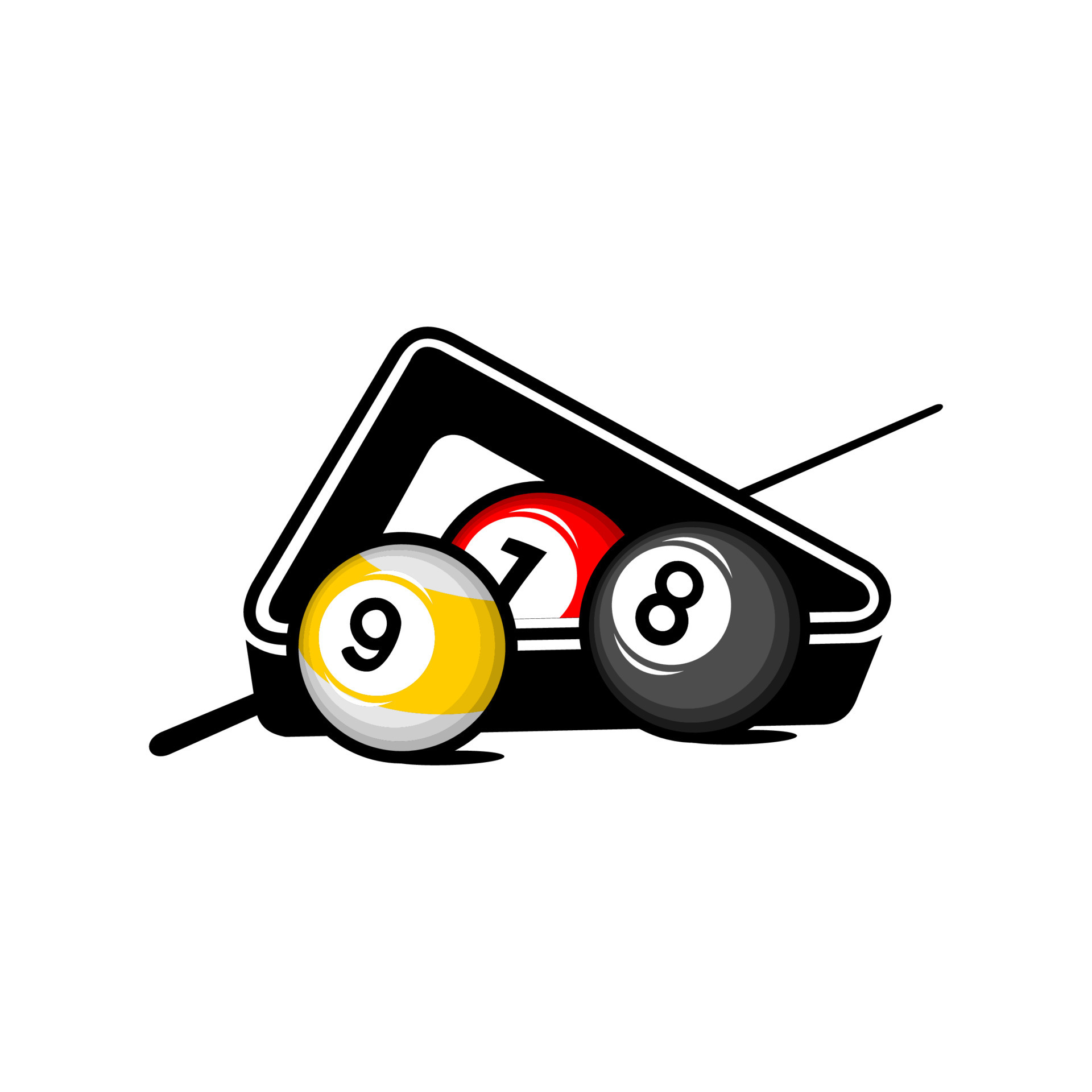Is billiard a sport? This question has sparked heated discussions for years, with passionate arguments on both sides. Picture this: you're hanging out with your mates, cue sticks in hand, and someone says, "Hey, is this even a real sport?" Suddenly, the room erupts into chaos. Some argue it's a game of skill and strategy, while others insist it's not physical enough to qualify as a sport. But let's dive deeper, shall we? Because the truth is, there's more to billiards than meets the eye.
From its origins in ancient Europe to its modern-day status as a global phenomenon, billiards has evolved into something far more complex than just a casual pastime. It's a game that demands precision, focus, and mental strength—qualities often associated with traditional sports. But does that make it a sport? Let's break it down and find out.
Whether you're a die-hard fan or a skeptic, understanding the history, rules, and physical demands of billiards can change your perspective. So grab your favorite drink, sit back, and let's explore why billiards might just be the sport you never realized you loved.
Read also:Hdhub Movie Your Ultimate Destination For Cinematic Bliss
What Exactly Is Billiards?
Before we dive into the debate, let's get one thing straight: what exactly is billiards? Billiards refers to a family of cue sports played on a table with balls and a cue stick. The most popular variations include pool (eight-ball, nine-ball), snooker, and carom billiards. Each game has its own set of rules and challenges, but they all share a common goal: to outwit your opponent by strategically pocketing balls.
Billiards isn't just about hitting balls; it's about understanding angles, physics, and psychology. Players must think several moves ahead, much like a chess grandmaster plotting their next strategy. And let's not forget the physical aspect—hours of standing, bending, and focusing can take a toll on even the fittest athletes.
A Brief History of Billiards
Billiards has a rich history that dates back to the 15th century. It originated as an outdoor game similar to croquet, where players used maces to hit balls on the ground. Over time, the game moved indoors and evolved into the table-based version we know today. Royalty and nobility were among its earliest fans, with kings and queens often seen playing in their lavish palaces.
Fast forward to the 19th century, and billiards had become a popular pastime for the masses. The invention of the leather-tipped cue stick revolutionized the game, allowing players to execute more complex shots. Today, billiards is played in over 80 countries and has a thriving competitive scene with millions of fans worldwide.
Why Some People Think Billiards Isn't a Sport
Let's face it—there are plenty of people who argue that billiards isn't a sport. Their reasons? Well, they claim it's not physically demanding enough, lacks team dynamics, and doesn't involve running, jumping, or sweating buckets. But is physical exertion really the defining factor of a sport? Let's take a closer look at these arguments.
- Physical Activity: Critics say billiards players don't move much during a game, but they overlook the mental and physical endurance required to compete at a high level.
- Team Dynamics: While most billiards games are individual, there are team competitions that require collaboration and communication.
- Traditional Perception: Many people equate sports with activities like football or basketball, dismissing anything that doesn't fit their preconceived notions.
At the end of the day, the definition of a sport is subjective. What one person sees as a game, another might view as a legitimate athletic pursuit. And billiards, with its unique blend of skill and strategy, falls squarely into that gray area.
Read also:Hdhub4u South Your Ultimate Guide To Streaming Bliss
Physical Demands of Billiards
Don't let the laid-back vibe of billiards fool you—this game requires serious physical conditioning. Players must maintain proper posture, balance, and flexibility to execute precise shots. Imagine standing for hours, bending over the table, and focusing intently on a single ball. It's not as easy as it looks!
Top players often incorporate strength training, stretching, and even yoga into their routines to improve their performance. They also need excellent hand-eye coordination, which can only be developed through years of practice. So the next time someone tells you billiards isn't a sport, remind them of the physical demands it places on its athletes.
Why Billiards Meets the Criteria of a Sport
Now that we've addressed the counterarguments, let's focus on why billiards fits the definition of a sport. According to the International Olympic Committee (IOC), a sport is "an activity involving physical exertion and skill in which an individual or team competes against another or others for entertainment." By this definition, billiards checks all the boxes.
- Physical Exertion: As we discussed earlier, billiards demands stamina, flexibility, and coordination.
- Skill: Mastering the game requires years of practice and dedication, much like any other sport.
- Competition: Professional billiards tournaments attract thousands of participants and millions of viewers, proving its popularity and legitimacy.
Furthermore, billiards promotes mental toughness, discipline, and strategic thinking—all qualities that define a true athlete. So whether you're playing for fun or competing at the world championships, you're engaging in a sport that challenges both body and mind.
The Mental Game of Billiards
While physical skills are important, the mental aspect of billiards cannot be overstated. Players must remain calm under pressure, make split-second decisions, and anticipate their opponent's moves. It's like playing chess on a table, where every shot counts and mistakes can be costly.
Top players often talk about the importance of mental preparation before a match. They use techniques like visualization, meditation, and positive self-talk to stay focused and confident. And let's not forget the psychological warfare that takes place during a game—players will often try to intimidate or distract their opponents to gain an edge.
Billiards in the Modern Era
In recent years, billiards has gained renewed popularity thanks to advancements in technology and media. Streaming platforms like YouTube and Twitch have made it easier than ever to watch professional matches, while social media allows fans to connect with their favorite players. This increased exposure has helped billiards reach a wider audience and gain recognition as a legitimate sport.
Organizations like the World Professional Billiards and Snooker Association (WPBSA) and the International Billiards and Snooker Federation (IBSF) are working hard to promote the sport and secure its place in the global sports landscape. They organize tournaments, develop training programs, and advocate for billiards to be included in major sporting events like the Olympics.
Key Statistics About Billiards
Here are some fascinating stats that highlight the popularity and significance of billiards:
- Over 70 million people worldwide play billiards regularly.
- The total prize money for professional tournaments exceeds $10 million annually.
- Billiards is played in over 80 countries, making it one of the most globally recognized cue sports.
These numbers speak volumes about the sport's reach and influence. With such a large and dedicated fanbase, it's hard to argue against billiards' status as a legitimate sport.
Billiards vs. Traditional Sports
Comparing billiards to traditional sports like football or tennis might seem like an apples-to-oranges situation, but there are more similarities than you might think. Both require skill, practice, and competition, and both offer opportunities for athletes to showcase their talents on a global stage.
One key difference, however, is the perception of physicality. While traditional sports emphasize speed and strength, billiards focuses on precision and strategy. This doesn't make it any less demanding—it just highlights a different set of skills and attributes.
Breaking Down the Misconceptions
Misconceptions about billiards abound, but many of them are based on outdated stereotypes. For example, some people think billiards is only played in smoky bars or that it's not a serious pursuit. The truth is, professional billiards is a highly respected and competitive sport with its own set of rules, regulations, and governing bodies.
By dispelling these myths and educating the public about what billiards really entails, we can help shift the conversation and gain wider acceptance for the sport.
Conclusion: Is Billiard a Sport?
So, is billiard a sport? The answer is a resounding yes. With its rich history, demanding physical and mental requirements, and growing global presence, billiards meets all the criteria of a legitimate sport. Whether you're a casual player or a professional competitor, there's no denying the skill and dedication required to excel at this incredible game.
Now it's your turn to join the conversation. Leave a comment below and let us know what you think. Are you a proud supporter of billiards as a sport, or do you still have doubts? Either way, we'd love to hear from you. And don't forget to share this article with your friends and family—let's spread the word about the amazing world of billiards!
Table of Contents
- Is Billiard a Sport? The Ultimate Debate
- What Exactly Is Billiards?
- A Brief History of Billiards
- Why Some People Think Billiards Isn't a Sport
- Physical Demands of Billiards
- Why Billiards Meets the Criteria of a Sport
- The Mental Game of Billiards
- Billiards in the Modern Era
- Key Statistics About Billiards
- Billiards vs. Traditional Sports
- Breaking Down the Misconceptions
- Conclusion: Is Billiard a Sport?


